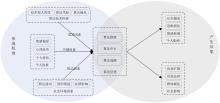
农业图书情报学报 ›› 2024, Vol. 36 ›› Issue (10): 86-94.doi: 10.13998/j.cnki.issn1002-1248.24-0537
社交媒体用户算法厌恶特征表现、成因要素及应对策略研究
牟妍
- 黑龙江科技大学 图书馆,哈尔滨 150001
Social Media Users' Expression, Formation Mechanism, and Coping Strategies for Algorithm Aversion
Yan MOU
- Library of Heilongjiang University of Science and Technology, Harbin 150001
摘要:
[目的/意义] 厘清社交媒体用户算法厌恶特征表现与成因要素,有助于准确把握算法时代用户的信息需求和信息偏好,为改进和优化算法技术和算法服务提供必要借鉴。 [方法/过程] 通过对26名受访者进行深度访谈获得原始文本数据,借鉴质性研究范式围绕着社交媒体用户算法厌恶特征表现、成因要素以及产生后果进行编码分析,构建了社交媒体用户算法厌恶理论模型分析框架。 [结果/结论] 研究结果显示,社交媒体用户算法厌恶具体表现为算法抱怨、算法中止和算法逃避3种具体形态,对个人、组织和社会产生重要影响。同时也发现个人因素、算法技术因素和社会环境因素是诱发社交媒体用户算法厌恶形成的重要因素,进而提炼出“个人-算法-社会环境”社交媒体用户算法厌恶成因要素分析框架。
中图分类号: G252
牟妍. 社交媒体用户算法厌恶特征表现、成因要素及应对策略研究[J]. 农业图书情报学报, 2024, 36(10): 86-94.
Yan MOU. Social Media Users' Expression, Formation Mechanism, and Coping Strategies for Algorithm Aversion[J]. Journal of Library and Information Science in Agriculture, 2024, 36(10): 86-94.





